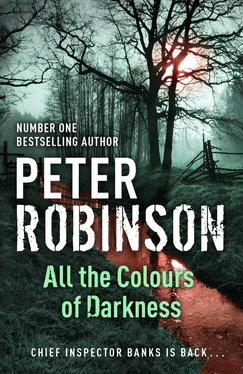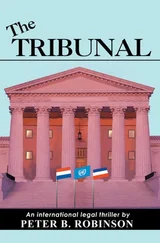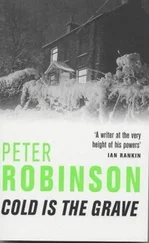“Me, too,” Sophia said. “I wish you’d been here, that’s all. It’s just so not fair, you being up there, me down here.”
“I know. Next time. And I’ll do the cooking.”
It was Sophia’s turn to laugh. “Egg and chips all round?”
“What makes you think I can cook an egg? Or make chips?” “Something more exotic?”
“You haven’t tasted my spag bol yet.”
“I’m going to hang up now,” Sophia said, “before I collapse in an unstoppable fit of giggles. Or is that a fit of unstoppable giggles? Anyway, I’m tired. Miss you. Good night.”
“Good night,” said Banks. And the last thing he heard was her laughter as she put down the phone. Richard Hawley had finished and Banks drained the last of his wine. He didn’t really feel like listening to anything else as the waves of tiredness rolled over him. The only sounds left were the hum of the stereo and the wind moaning down the chimney. Banks felt more alone and farther away for having just talked to Sophia than he had before her call. But it was always like that—the telephone might bring you together for a few moments, but there’s nothing like it for emphasizing distance. He hadn’t told her missed her, too, and he wished he had. Too late now, he thought, putting the glass down and heading for bed.
Derek Wyman's household at half past ten on Sunday morning reminded Banks of his own before Sandra and the kids had left. It wasn’t far away from his old semi, either, just off Market Street about half a mile south of the town center. In the spacious living and dining area, pop music was blasting out from a radio or stereo, a teenage boy lay on his stomach on the carpet in front of the television playing games that involved killing futuristic armor-clad soldiers with a great deal of noise and gouts of blood, while his shy, skinny sister chatted away on her mobile, face completely hidden by hair. The smell of bacon lingered in the air as Mrs. Wyman cleared away the breakfast table by the bay window. Outside, the wind lashed sheets of rain across the street. On the opposite wall stood a large bookcase full of theatrical texts, an edition of Chekhov’s plays, the RSC Complete Works of Shakespeare, BFI screenplays and big paperback novels in translation—Tolstoy, Gogol, Dostoyevsky, Zola, Sartre, Balzac.
Derek Wyman had clearly been sitting in his favorite armchair reading the Sunday Times Culture section. How he could concentrate with all the noise going on Banks had no idea, though he supposed he must have done it himself at one time. The front section of the newspaper lay on the chair arm beside him, open to the news of the apparent murder-suicide in Eastvale. It wasn’t much of a story. Laurence Silbert hadn’t been named, Banks knew, because his body hadn’t been identified. Mark Hardcastle’s had, by Vernon Ross. At least the birthmark Edwina had told them about confirmed Silbert’s identity in Banks’s mind.
“So much for the fine weather,” said Wyman, after Banks and Annie had shown him their warrant cards. He nodded toward the paper. “I suppose this is about Mark?”
“Yes,” said Banks.
“Quite a shock to come home to, I must say. Dreadful business. I’m finding it very hard to take in. I would never have expected anything like that of him. Please, sit down.” Wyman cleared away some magazines and discarded clothes and offered them the sofa. “Dean, Charlie,” he said, “why don’t you go up to your rooms and play. We need to talk. And turn that damn music off.”
With slow, drawn-out movements, both kids gave their father a long-suffering look and dragged themselves upstairs, Dean switching off the radio on his way.
“Teenagers,” Wyman said, rubbing his head. “Who’d have ’em? I spend most of my days with them at school, and then I come home and have to deal with two of my own. Must be a masochist. Or mad.”
Complaining was usually staff-room routine for teachers, Banks knew, a way of fitting in and pretending they didn’t really love what they did and deserve their long holidays. In fact, Wyman seemed like a man with the energy and patience necessary to deal with teenagers on a daily basis. Tall, thin, wiry even, with a closely cropped scalp and an elongated bony face with deep-set, watchful eyes, he taught games as well as drama. Banks remembered that his own English teacher had also been a PE instructor and was particularly good at importing the plimsoll from one class to the other, where he swung it hard and frequently at his pupils’ backsides. At least he didn’t say, “This is going to hurt me more than it hurts you,” the way the divinity teacher did every time he slippered someone. Still, there was no slippering in schools these days.
A few framed photographs graced the mantelpiece, mostly Wyman and his wife and kids, and the children’s school photos, but Banks noticed one in which a slightly younger Wyman stood next to an older man in a uniform outside a train station, the man’s arm draped over his shoulders. “Who’s that?” he asked.
Wyman saw where he was looking. “Me and my brother,” he said. “Rick was in the army.”
“Where is he now?”
“He’s dead,” said Wyman. “Killed in a helicopter accident on maneuvers in 2002.”
“Where did it happen?”
“Afghanistan.”
“Were you very close?”
Wyman glanced at Banks. “He was my big brother. What do you think?”
Banks hadn’t been at all close to his big brother, not until it was too late, but he understood. “I’m sorry,” he said.
“Well,” said Wyman, “that’s what you sign up for when you join the bloody army, isn’t it?”
Mrs. Wyman finished clearing the dishes away and sat at the table. She was an attractive brunette with a button nose, in her late thirties, a little careworn, but she obviously worked at keeping her figure and preserving her smooth complexion. “You don’t mind me being here, do you?” she asked.
“Not at all,” said Banks. “Did you know Mark Hardcastle?”
“I met him a few times,” she said, “but I wouldn’t say I knew him. Still, it’s terrible, what’s happened.”
“Yes,” Banks agreed, turning back to her husband. “I understand you were in London with Mark just last week?”
“Yes,” said Wyman. “Briefly.”
“Do you visit there often?”
“Whenever I can get away. Theater and film are my passions, so London’s the place to soak it all up. The bookshops, too, of course.”
“Mrs. Wyman?”
She smiled indulgently at her husband, as if rather pleased that he had a childish enthusiasm to fire him. “I’m more at home with a good book,” she said. “A Jane Austen or Elizabeth Gaskell. I’m afraid the dazzle of the footlights and the smell of greasepaint are a bit rich for my sensibilities.”
“Carol’s a bit of a philistine,” said Wyman, “though she’s not lacking in education.” He had a noticeable Yorkshire accent, but he didn’t use many Yorkshire idioms or contractions in his speech. Banks thought that was probably because he’d been to university and spent plenty of time away.
“Do you teach, Mrs. Wyman?” Banks asked.
“Good Lord, no. I don’t think I could handle any more adolescent angst,” she said. “And the little ones would be too wild for me. I’m a part-time receptionist at the medical center. Would you like me to make some tea?”
Everyone thought that sounded like a good idea. Seeming pleased to have something to do, Mrs. Wyman went through to the kitchen.
“Were many of these London trips made with Mark Hardcastle?” Banks asked Wyman.
“Good Lord, no! This was the first. And I wasn’t really with him.”
“Can you explain?”
“Of course. Ask away.”
Читать дальше












